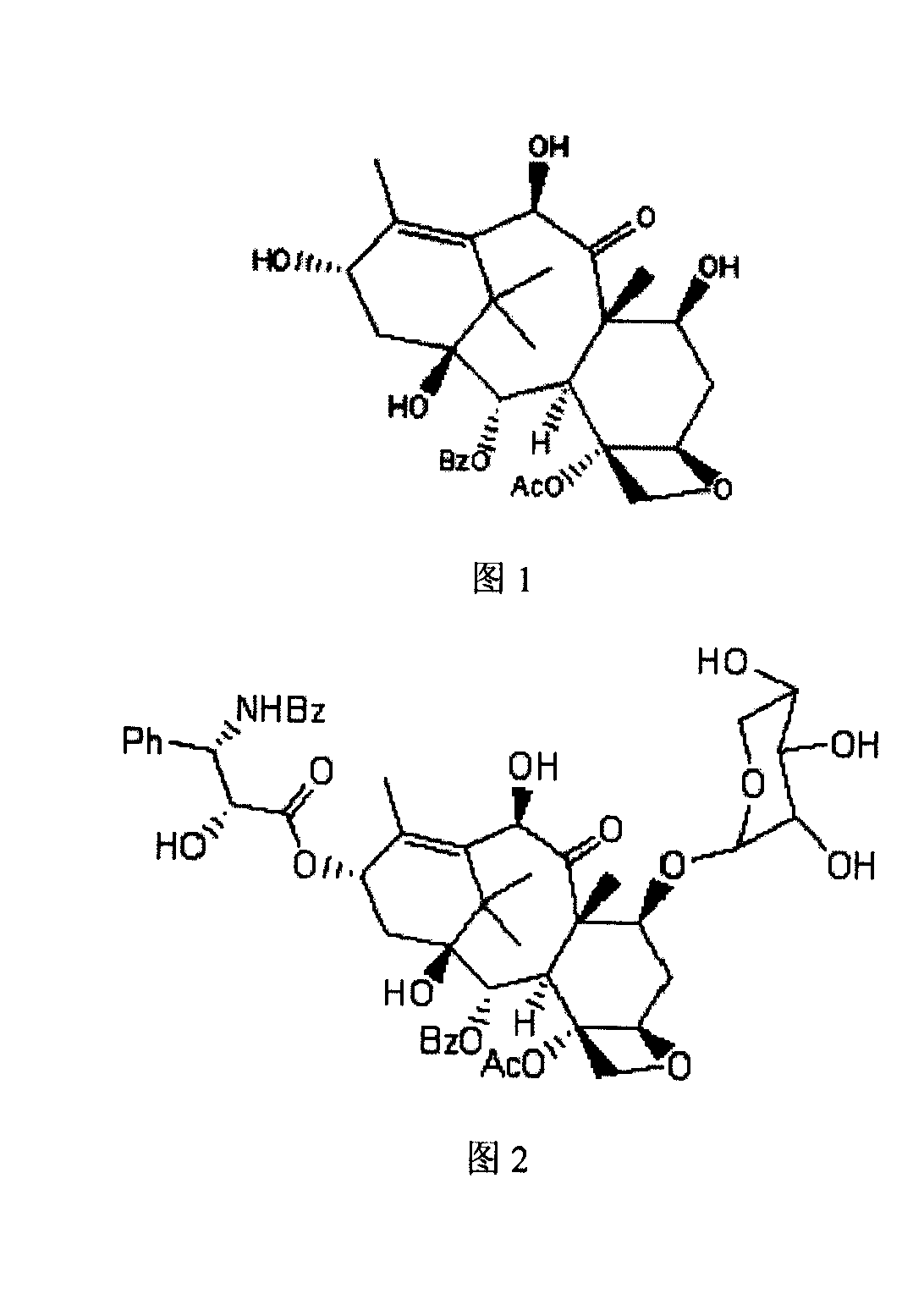Method for extracting and purifying two kinds of taxane compound from yew branches and leaves
A technology of yew branches and leaves and acetyl-paclitaxel, which is applied in organic chemistry and other fields, can solve the problems of wasting plant resources and polluting the environment, and achieve high-efficiency utilization, short time and high efficiency
- Summary
- Abstract
- Description
- Claims
- Application Information
AI Technical Summary
Problems solved by technology
Method used
Image
Examples
Embodiment 1
[0020] Weigh 200g of southern yew branches and leaves, dry and pulverize, add 2000mL of water for negative pressure cavitation extraction, filter after 30min, and add the filtrate to a glass column equipped with 35g of AB-8 resin for dynamic adsorption. The loading solution is 15BV, The concentrations of 10-deacetylbaccatin III and 7-xylosyl-10-deacetylpaclitaxel in the sample solution were: 0.0657mg / mL and 0.1681mg / mL, the flow rate was 1mL / min, and the temperature was 35 ℃, using gradient elution method: 3BV of 30% ethanol was eluted to remove impurities, and then 6BV was eluted with 80% ethanol, the fractions were collected and concentrated to dryness. The content of -xylosyl-10-deacetyl paclitaxel was increased from 0.2% and 0.053% to 1.69% and 3.34%, respectively, which was increased by 8.54 times and 62.43 times respectively. After the resin was enriched, the sample was purified by 300-400 mesh medium-pressure silica gel column chromatography. The silica gel used was 40 ...
Embodiment 2
[0022]Weigh 200g of Chinese yew branches and leaves, dry and pulverize them, add 2000mL of water for negative pressure cavitation extraction, filter after 30min, add the filtrate to a glass column equipped with 35g of AB-8 resin for dynamic adsorption, the loading solution is 15BV, The contents of 10-deacetylbaccatin III and 7-xylosyl-10-deacetylpaclitaxel in the loading solution were 0.0519mg / mL and 0.1673mg / mL respectively, the flow rate was 1mL / min, and the temperature was 35 ℃, using gradient elution method: 3BV of 30% ethanol was eluted to remove impurities, and then 6BV was eluted with 80% ethanol, the fractions were collected and concentrated to dryness. The content of -xylosyl-10-deacetyl paclitaxel increased from 0.16% and 0.049% to 1.57% and 3.46%, respectively, increasing 9.81 times and 70.61 times respectively. After the resin was enriched, the sample was purified by 300-400 mesh medium-pressure silica gel column chromatography. The silica gel used was 40 g, the co...
PUM
 Login to View More
Login to View More Abstract
Description
Claims
Application Information
 Login to View More
Login to View More - R&D
- Intellectual Property
- Life Sciences
- Materials
- Tech Scout
- Unparalleled Data Quality
- Higher Quality Content
- 60% Fewer Hallucinations
Browse by: Latest US Patents, China's latest patents, Technical Efficacy Thesaurus, Application Domain, Technology Topic, Popular Technical Reports.
© 2025 PatSnap. All rights reserved.Legal|Privacy policy|Modern Slavery Act Transparency Statement|Sitemap|About US| Contact US: help@patsnap.com

